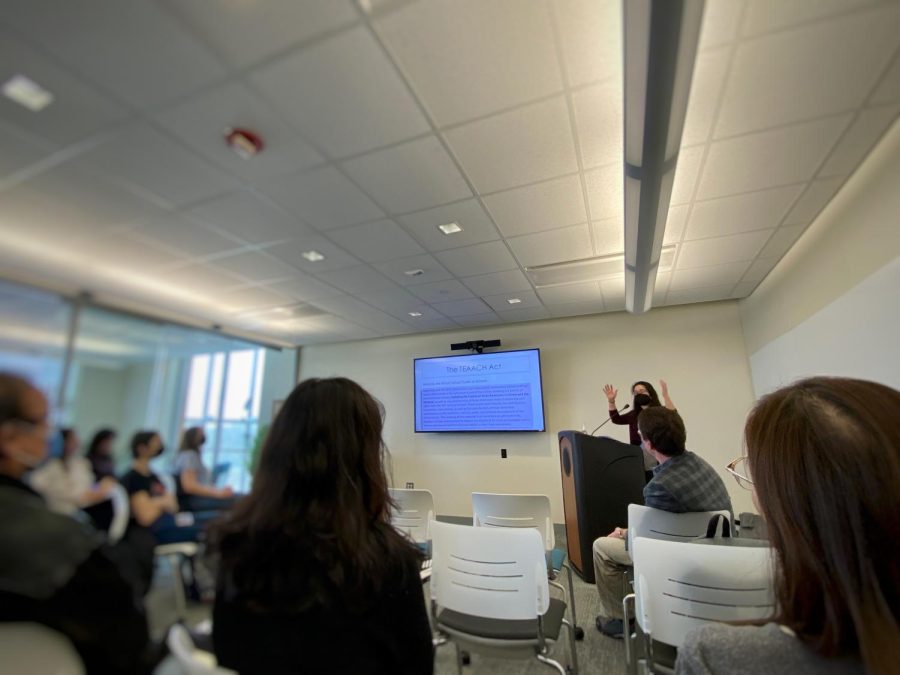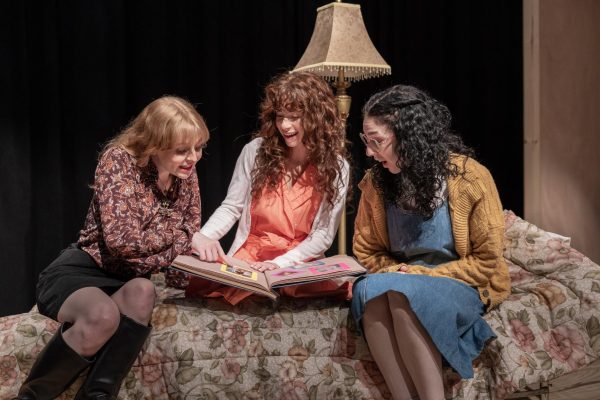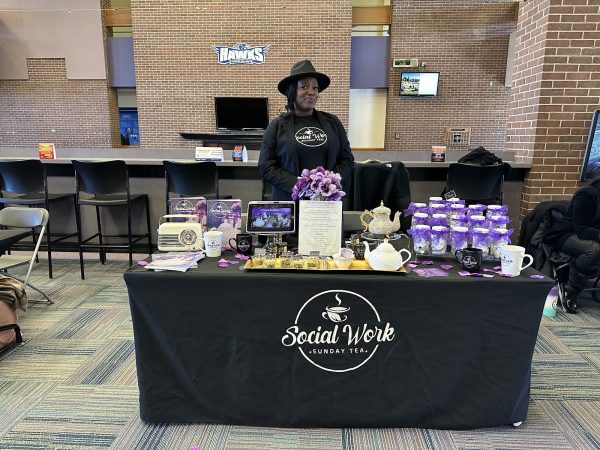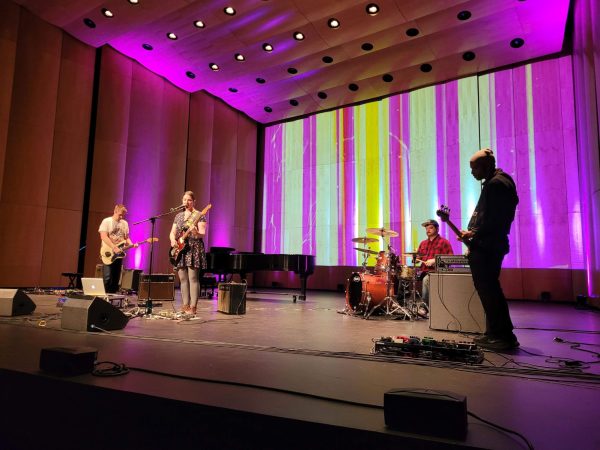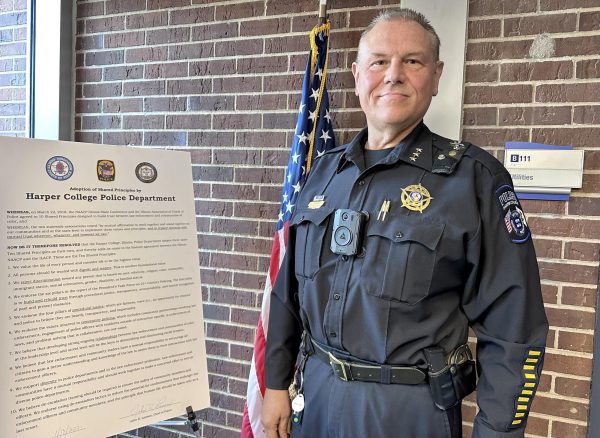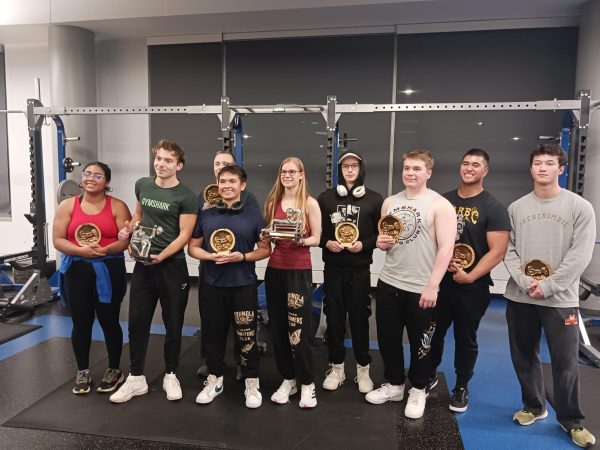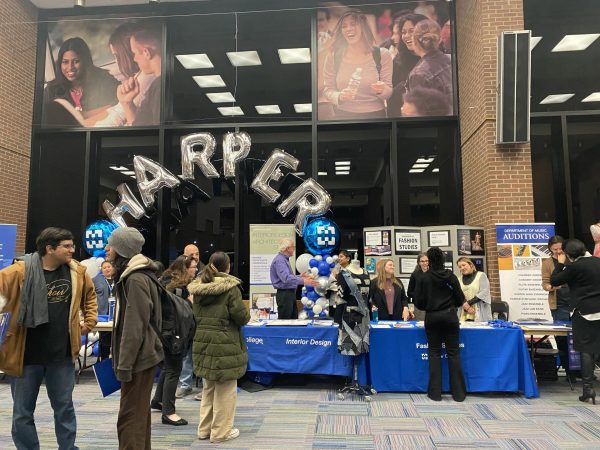Cultural Center hosts Asian American TEAACH Act presentation and lunch
Harper’s Cultural Center hosted Emma Saito Lincoln, Legacy Camp Director at the Japanese American Service Committee (JASC), on April 6. Lincoln was invited to explain Illinois’ new Teaching Equitable Asian American Community History (TEAACH) Act and its impact on Japanese Americans’ past and current roles in society.
The TEAACH act is the first law in U.S. history that makes a unit of Asian American history mandatory in public elementary and high schools in Illinois. TEAACH was signed into law on July 9 of last year and is effective starting the 2022-2023 school year.
Lincoln began by describing her background and experiences relating to Asian American history and then proceeded to explain the TEAACH act and why students at Harper should care.
Harper, as of last semester, had 13.7 percent of students who identified as Asian, according to 2021 data included in the presentation.
Students of minority groups have protested that history taught in public education schools fails to equitably represent Asian Americans, as is seen with many other underrepresented groups.
Advocates for the TEAACH Act articulate that this combination of misrepresentation and lack of representation is a contributing factor to the discrimination toward Asian Americans, which has risen since the start of the COVID-19 as evident from the increase in hate crimes.
It was co-founded by Illinois state representatives Jennifer Gong-Gershowitz and Stewart Kwoh, although the organization Asian Americans Advancing Justice Chicago was the group that led the initiatives to make sure the legislation went through.
“We all have to be advocates for the implementation of this bill,” Lincoln said.
She also gave an overview of Japanese American history since WWll and played an interview of a Japanese American who lived through WWll incarceration sites. To conclude, she shared how Japanese Americans are active participants in society today through activism in various movements.
She pointed out that no matter where you go, you will be interacting with Asians, so acquiring a greater understanding of their history will facilitate more empathetic interactions.
Turnout at the free event included students and educators and buffet-style Asian cuisine.
First-year Harper student Kei Smith said the presentation made her emotional. “I think I shed a few tears,” Smith laughed.
She shared that this event inspired her to want to be more involved in racial activism and learn more about her own culture. She is currently in the process of developing a new club that celebrates Asian American culture.
Manager of the Cultural Center Brittany Barber said that she hopes events like these help students to think more critically about the history we learn and the history we don’t learn.
First-year Harper student Dana Khatib also values gaining a historical perspective.
“In order to understand modern times, we have to understand the past,” Khatib expressed.
Upcoming events at the Cultural Center include “You: A History Through Art” on May 10 and a Holi celebration on May 12. For more information, visit Harper’s website at https://events.harpercollege.edu/calendar.

